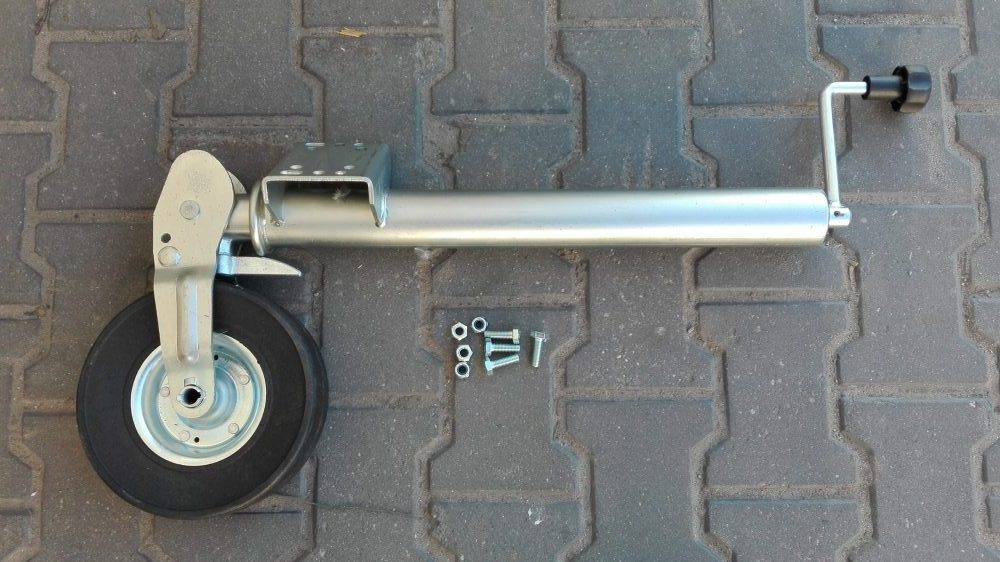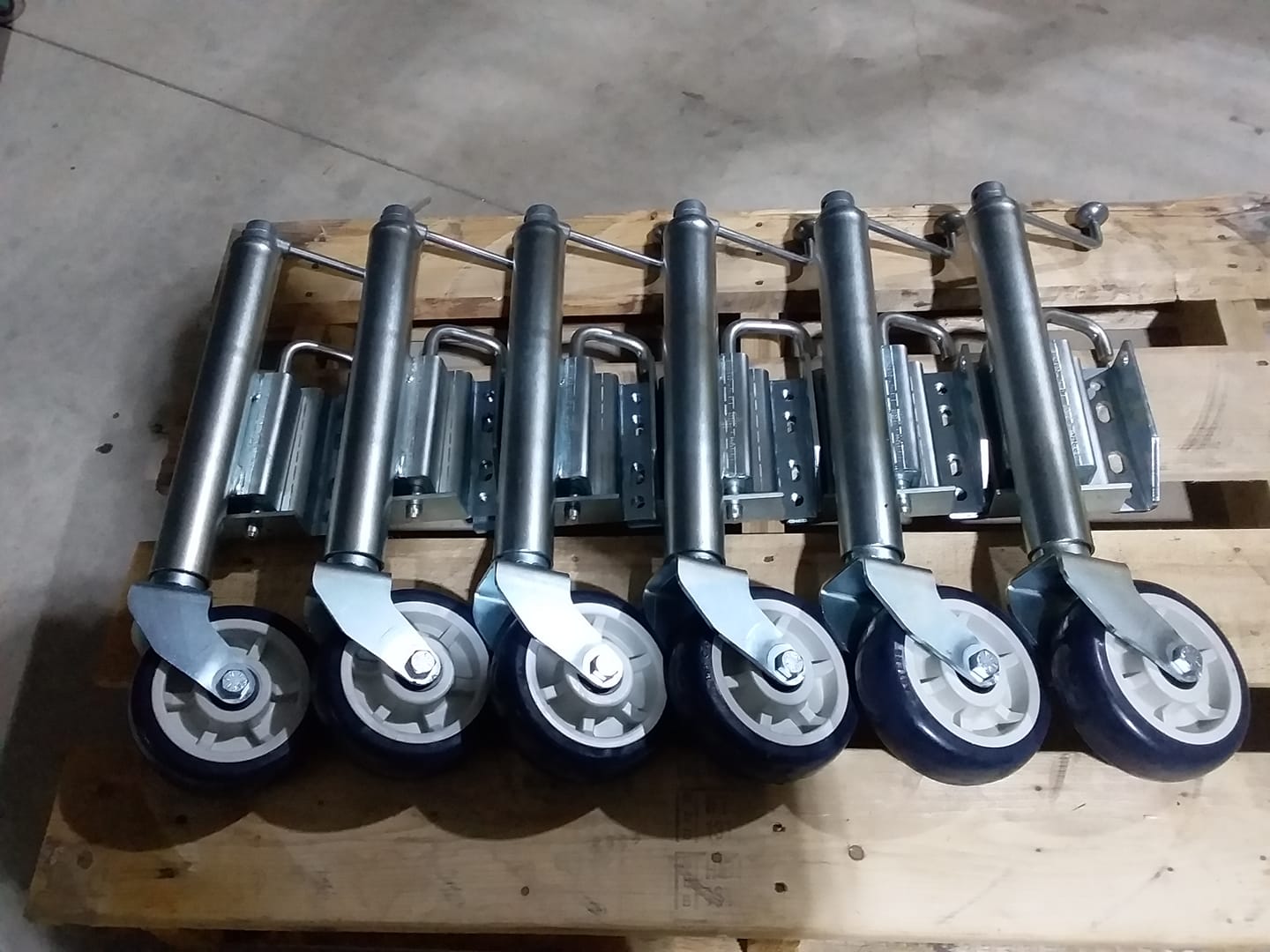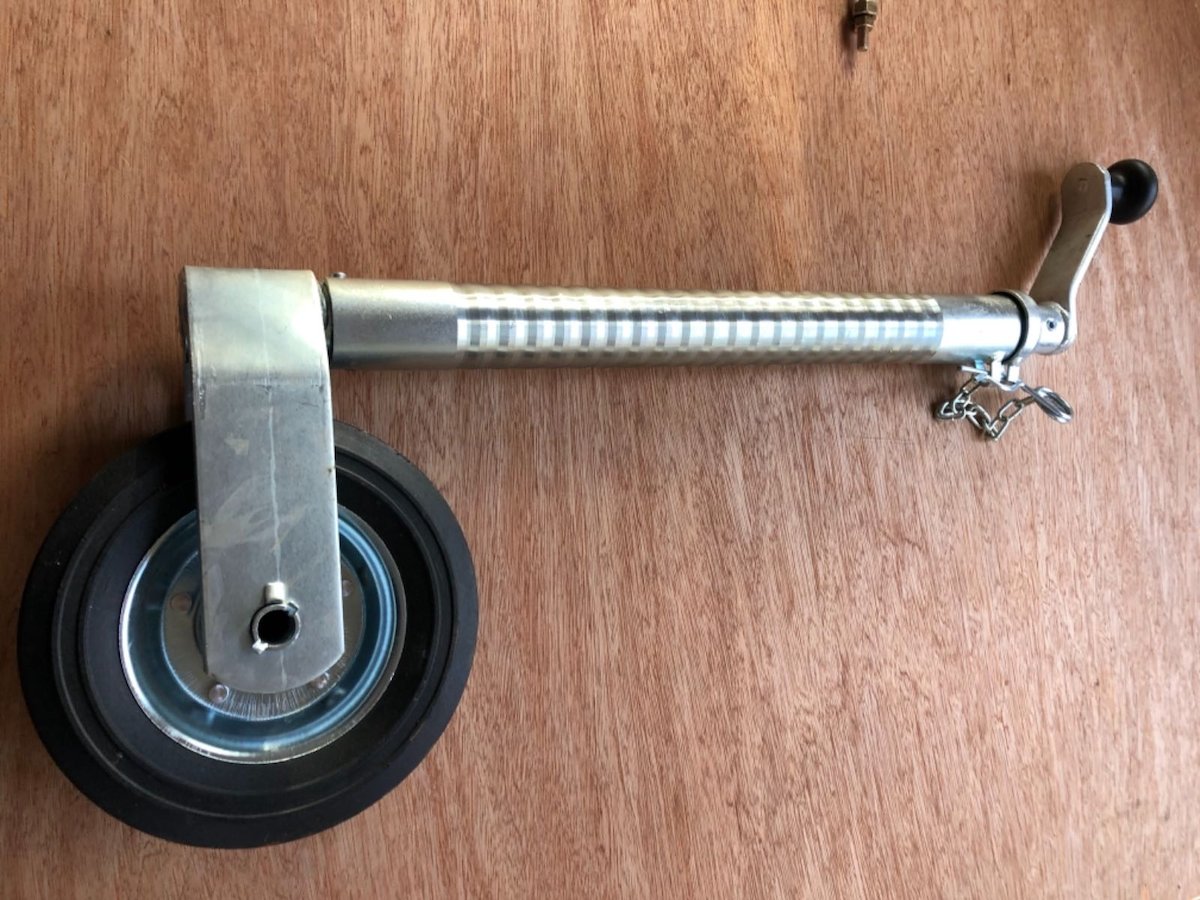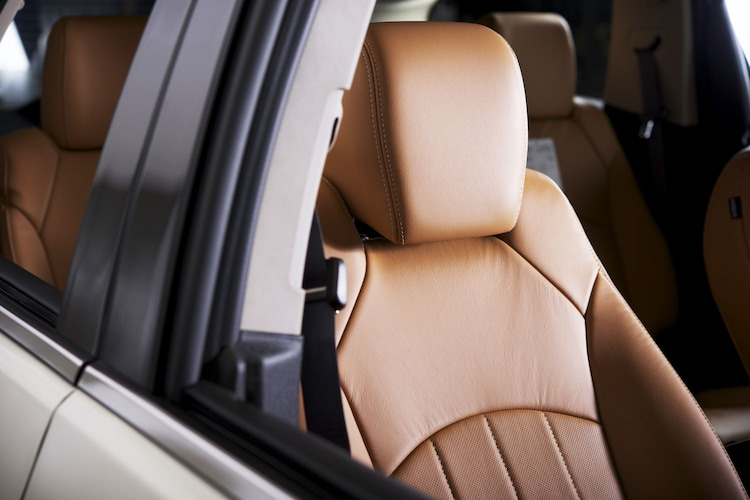
The Unsung Heroes: Exploring the World of Jockey Wheels for Sale in Commercial Trolleys
In the bustling world of commerce, where the seamless movement of goods is paramount, trolleys emerge as indispensable workhorses. From the vast expanse of warehouses to the dynamic energy of marketplaces, these silent companions facilitate the efficient transportation of goods, making them a linchpin in the daily operations of businesses.
Among the myriad components that contribute to the functionality of trolleys, jockey wheels stand out as crucial players. Having said that, let’s delve into the multifaceted world of jockey wheels, exploring their significance, the various types available for sale, and how they impact the maneuverability and versatility of commercial trolleys.
The Diversity of Trolleys

Before delving into the specifics of jockey wheels, it’s essential to understand the diverse landscape of trolleys. These indispensable tools come in various shapes, sizes, and functionalities, catering to the unique needs of different industries. Some common types of trolleys include:
Platform Trolleys
Flat-bed trolleys are designed for transporting bulky or heavy items within warehouses or factories.
Shopping Trolleys
Ubiquitous in supermarkets, these trolleys are specially crafted for carrying groceries and other retail items.
Service Trolleys
Equipped with shelves or compartments, these trolleys are ideal for transporting tools, supplies, or food and beverage services in hotels and restaurants.
Folding Trolleys
Compact and versatile, folding trolleys are designed for easy storage and portability, making them ideal for various applications.
Cage Trolleys
Trolleys with mesh or solid sides, are suitable for securely transporting items that require containment.
Understanding Jockey Wheels

Amidst the wheels, handles, and frames that compose a trolley, jockey wheels play a pivotal role in ensuring smooth mobility and efficient maneuvering. These small, often overlooked components are located near the front of a trolley and can swivel or be fixed, depending on the intended use. The significance of jockey wheels for sale lies in their ability to distribute the load, reduce friction, and enable precise control during movement.
Types of Jockey Wheels
Swivel Jockey Wheels
These wheels can rotate 360 degrees, offering maximum maneuverability. Swivel jockey wheels are ideal for navigating tight spaces and making sharp turns.
Fixed Jockey Wheels
Designed to move only in a straight line, fixed jockey wheels for sale provide stability and are well-suited for transporting heavy loads without the need for frequent changes in direction.
Pneumatic Jockey Wheels
Fitted with air-filled tyres, pneumatic jockey wheels absorb shocks and vibrations, making them suitable for transporting delicate or fragile goods. They are commonly used in environments where a smoother ride is crucial.
Solid Rubber Jockey Wheels
Featuring a rubber tyre filled with solid material, these wheels are puncture-resistant and provide a reliable option for trolleys that traverse uneven surfaces or encounter debris.
Impact on Trolley Applications
Maneuverability
The type of jockey wheel used significantly impacts the maneuverability of a trolley. Swivel jockey wheels excel in tight spaces, while fixed wheels offer stability and straight-line movement. The right choice depends on the specific demands of the environment.
Load Distribution
Jockey wheels distribute the load evenly, preventing excessive strain on a single wheel and ensuring that the trolley remains balanced. This is crucial for the longevity of the trolley and the safety of its operators.
Surface Adaptability
Trolleys with pneumatic or solid rubber jockey wheels can adapt to different surfaces, providing a smooth ride on both smooth warehouse floors and rough outdoor terrain. The choice depends on the nature of the transportation route.
Versatility
The versatility of a trolley is enhanced by the type of jockey wheel it employs. Trolleys with swivel jockey wheels can navigate through crowded spaces, making them suitable for dynamic environments like markets, where agility is paramount.
Choosing the Right Jockey Wheels
Environmental Considerations
Assess the environment where the trolley will be used. For indoor applications with smooth surfaces, swivel jockey wheels may be preferred. In contrast, outdoor settings with uneven terrain might necessitate the use of pneumatic or solid rubber wheels.
Load Capacity
Consider the weight and nature of the items the trolley will transport. Heavier loads may require sturdier jockey wheels with a higher load capacity to ensure safe and efficient movement.
Maneuvering Requirements
Evaluate the need for precise maneuvering and turning. Swivel jockey wheels are excellent for applications where navigating tight corners is essential, while fixed wheels provide stability for straightforward transport.
Maintenance Considerations
Pneumatic wheels may require more maintenance due to the potential for punctures. Solid rubber wheels, on the other hand, offer durability and reduced maintenance needs.
Conclusion

In the intricate dance of commerce, where the smooth flow of goods is a paramount concern, trolleys emerge as unsung heroes. Within this realm, jockey wheels play a pivotal role in determining the functionality, maneuverability, and adaptability of commercial trolleys. From the swivel wheels that effortlessly navigate through crowded markets to the pneumatic wheels that absorb shocks on uneven warehouse floors, the diverse world of jockey wheels offers solutions tailored to the unique demands of various industries. As businesses continue to evolve, the importance of these small yet crucial components in the grand symphony of logistics becomes increasingly apparent. Whether in the expansive aisles of a warehouse or the lively corridors of a market, jockey wheels silently bear the weight of commerce, ensuring that goods move seamlessly from point A to point B.


